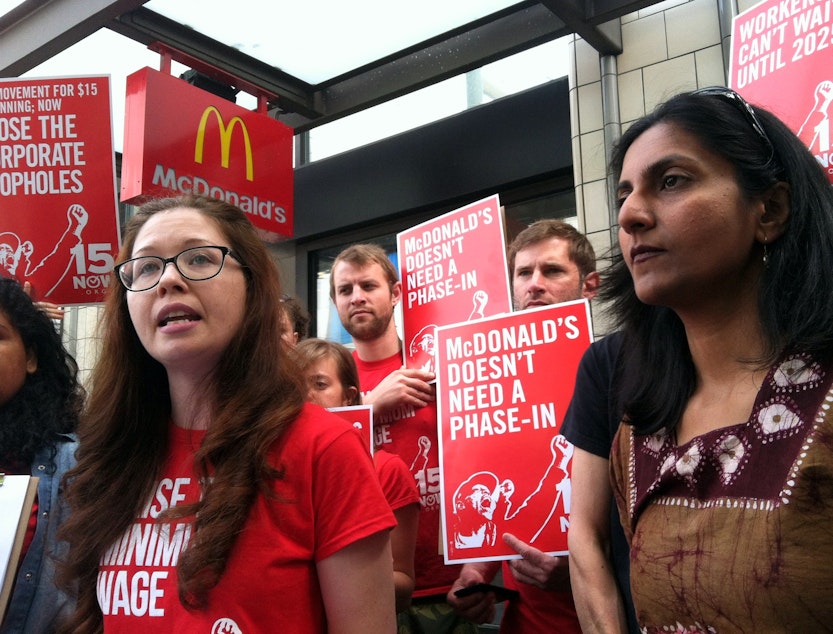Signature Campaign Begins For $15 Minimum Wage Initiative

Minimum-wage activists launched their signature-gathering campaign for a ballot initiative outside the downtown Seattle McDonald's Thursday.
The number of customers inside the McDonald's was bigger than the couple dozen activists outside, whose chants included, "Hold the burgers. Hold the fries. Make my wages super-size."
The minimum-wage activists say wages would rise too slowly under proposals backed by Mayor Ed Murray and business groups.
The activists hope to get tens of thousands of signatures for their initiative to quickly increase Seattle's minimum wage to $15 an hour.
Under Mayor Murray's proposal, big businesses like McDonald's would get up to four years to raise their wages. Small businesses would get up to seven years.
Socialist city council member Kshama Sawant was the first to add her signature in support of a faster increase.
"McDonald's does not need four years to keep its workers at a living wage," she said. "McDonald's has no justification to keep workers in poverty even for a day longer."
"We need to fight to make the phase-in period shorter," Sawant said. "These are not just numbers. These are lives."
U.S. Postal Service employee and American Postal Workers Union member David Yao said the postal service is trying to outsource his coworkers' jobs to Staples and UPS, which pay $10 an hour in Seattle.
"Poorly paid jobs always undercut good jobs," Yao said.
The "15 Now" activists say their ballot initiative provides a safety net if the Seattle City Council passes a watered-down wage increase.
The mayor's proposal would let businesses count workers' tips and health-care benefits as part of their minimum wage.
The ballot initiative would give employees of large businesses an immediate wage hike to $15 an hour -- a 60 percent increase over the current minimum of $9.32 an hour.
Restaurants and other businesses have said the rapid hike would force them to lay off workers.
The initiative would allow a three-year phase-in for organizations with fewer than 250 full-time employees.

